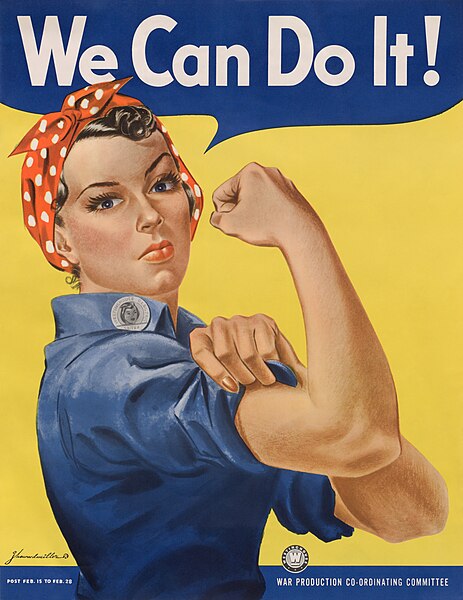The feminist movement, also known as the women's movement, refers to a series of social movements and political campaigns for radical and liberal reforms on women's issues created by inequality between men and women. Such issues are women's liberation, reproductive rights, domestic violence, maternity leave, equal pay, women's suffrage, sexual harassment, and sexual violence. The movement's priorities have expanded since its beginning in the 1800s, and vary among nations and communities. Priorities range from opposition to female genital mutilation in one country, to opposition to the glass ceiling in another.
The "We Can Do It!" war-propaganda poster from 1943 was re-appropriated as a symbol of the feminist movement in the 1980s.
A YPJ fighter, in November 2014
Women's liberation movement
The women's liberation movement (WLM) was a political alignment of women and feminist intellectualism that emerged in the late 1960s and continued into the 1980s primarily in the industrialized nations of the Western world, which effected great change throughout the world. The WLM branch of radical feminism, based in contemporary philosophy, comprised women of racially and culturally diverse backgrounds who proposed that economic, psychological, and social freedom were necessary for women to progress from being second-class citizens in their societies.
The women's liberation movement featured political activities such as a march demanding legal equality for women in the United States (26 August 1970)



